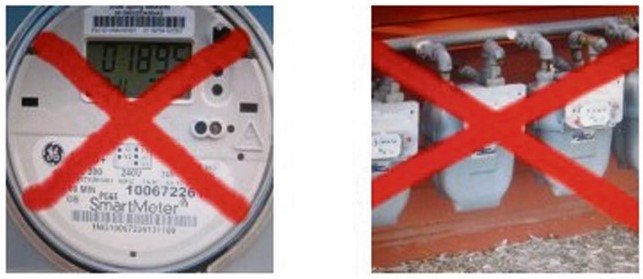Resolution received from Comrade Krishna Bhoyar, National Deputy General Secretary, All India Federation of Electricity Employees

(Translation of Hindi Resolution)
The Central Government has launched the “Restructured Distribution Sector Scheme” for the power sector. The Scheme (RDSS) was approved in July 2021 with an outlay of Rs 3,03,758 crore.
The work of installing 25 crore smart meters is being done across India. This scheme is for most of the consumers and it will be completed by 2025.
The Central Government will provide 60% of the funds for upgrading the infrastructure of the Discoms and the remaining funds will be managed by the Discoms of the State Governments. Thus, public money will be used to upgrade the distribution infrastructure which will be used by private companies.
The project has generated a lot of debate and in many states electricity employees’ unions as well as consumer organisations, Kisan Sabhas and electricity consumers are agitating against the central government policy. The smart meter project has been launched to meet the demands of big corporates. It is a step towards further privatisation of the most profitable parts of the power sector. The Modi government plans to spend public money in creating infrastructure for big corporates to use and make profits. The private sector monopolies now want their ownership and control over the entire power supply chain: generation, transmission and distribution. They want the government to create a system that ensures that the money for the electricity supplied is immediately recovered and given to them. All subsidies on electricity should be stopped. Prepaid smart meters mean that every consumer will have to pay the full price of electricity before consuming it.
Consumers and electricity employees in various parts of the country are protesting against the installation of prepaid smart electricity meters. The real purpose of launching the smart meter project is to loot them further and also pave the way for further privatization of the power distribution sector. Smart meters will help in maximizing the profits of the corporates in the power sector at the cost of consumers and the government exchequer.
Power consumers and common people are opposing it as they fear that after the installation of smart meters, all subsidies will end and electricity will become expensive and out of their reach. In one place in Bihar, power supply of 13000 consumers was cut off due to a fault in the prepaid metering system. The smart meter system will create many difficulties for consumers and consumers will have to face disruptions many times.
Forcing consumers to pay before consuming electricity will make thousands of crores of rupees available for the use of private power monopoly companies. Power generating companies will also be able to demand advance payment from Discoms before supplying electricity.
The RDSS has laid down several conditions regarding the determination of electricity rates. All costs should be included while fixing the annual tariff. Electricity will no longer be affordable for most consumers and people.
The smart meter system will be managed by a private company and thus consumers in our country will be deprived of electricity, a basic necessity of life today. Once privatized, electricity will become a means of profiteering.
Power sector employees will be hit doubly, first as consumers and secondly due to the privatization of Discoms. Lakhs of employees are likely to lose their jobs soon after the system is operational. 20,000 employees in Tamil Nadu and 30,000 in Maharashtra will become unemployed. This will increase unemployment.
The All India Federation of Electricity Employees (AIFEE) strongly opposed the scheme and launched a joint protest by uniting consumer organizations.
The Modi government has proposed an anti-people, anti-national and pro-big corporate Electricity (Amendment) Bill 2022. This bill is proposed for the benefit and more profits of corporate houses, franchisee companies. The introduction of multiple licensees in the distribution sector and allowing parallel licenses to corporates is a step towards complete privatization of state-owned electricity distribution. The provision laid down by the central government is an infringement of the domain of the states.
Private distributors will not have to make any investment in building distribution infrastructure and will have to pay only nominal rent for the use of discom infrastructure.
All India Federation of Electricity Employees and National Coordination Committee of Electricity Employees resorted to all India strike and all opposition political parties opposed the bill in Lok Sabha and the bill could not be passed and was referred to the Parliamentary Standing Committee. Modi government is elected by a very narrow margin in the 2024 Lok Sabha election. Electricity employees led by AIFEE will go on a power strike if the Modi government reintroduces the bill. AIFEE registered its protest against the policy of the central government and demanded the withdrawal of the anti-consumer, anti-national and anti-state draconian bill. Samyukta Kisan Morcha (SKM) has also opposed it.
The General Council of the All India Trade Union Congress held at Visakhapatnam from 1st to 3rd September expresses its support to the struggle of 15 lakh electricity workers and engineers agitating against privatisation of power sector and withdrawal of Electricity Amendment Bill 2022.
Comrade Krishna Bhoyar moved the motion on behalf of All India Federation of Electricity Employees.
